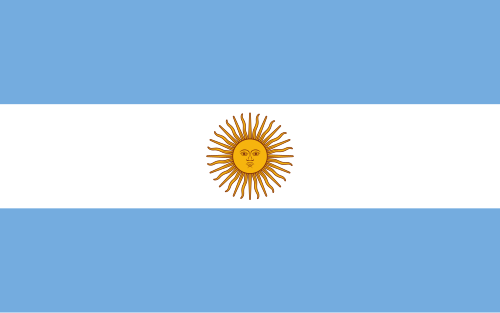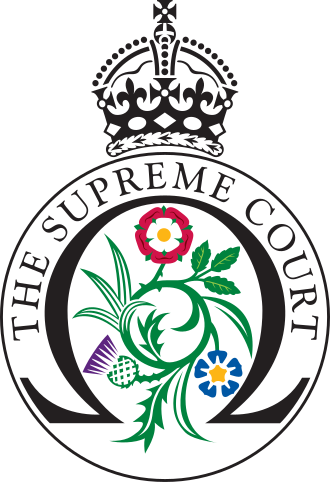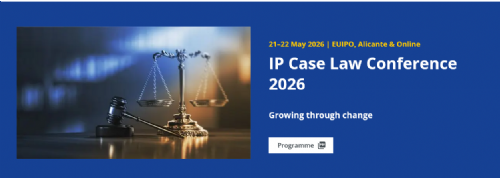Now in its twelfth year, Class 46 is dedicated to European trade mark law and practice. This weblog is written by a team of enthusiasts who want to spread the word and share their thoughts with others.
Click here subscribe for free.
Who we all are...
Argentina–US Agreement: key IP commitments
 On 5 February 2026, the governments of Argentina and the United States executed the long-anticipated Reciprocal Trade and Investment Agreement, marking a significant step in the modernisation of bilateral economic relations. Paola Tessarolo reports for the Class 46 blog.
On 5 February 2026, the governments of Argentina and the United States executed the long-anticipated Reciprocal Trade and Investment Agreement, marking a significant step in the modernisation of bilateral economic relations. Paola Tessarolo reports for the Class 46 blog.
IP protection was one of the central pillars of the negotiations. The final text confirms that IP commitments form a core component of the agreement and reflect long-standing concerns raised by the US regarding Argentina’s legal framework and enforcement environment.
Strengthening international integration
The Agreement’s most significant provisions consist of specific commitments undertaken by Argentina to deepen its integration into the international IP system. These include:
Submission of the Patent Cooperation Treaty (PCT) to Congress for consideration and a vote on ratification by 30 April 2026.
Accession to the Patent Cooperation Treaty would represent a structural change for Argentina’s patent landscape, enabling applicants to use the international filing route and aligning the country with more than 150 contracting states. This step is expected to enhance legal certainty, encourage foreign direct investment, and streamline procedures for both domestic and foreign innovators.
Submission of the Madrid Protocol to Congress for consideration and a vote on ratification before the end of 2027.
Ratification of the Madrid Protocol would integrate Argentina into the international trade mark registration system administered by WIPO. For brand owners, this would significantly simplify multi-jurisdictional filings and portfolio management, reducing costs and administrative burdens. For Argentina, it would signal a clear commitment to international best practices in trade mark protection.
Standards, scope and term of protection
| These provisions seek to provide broader scope and stronger protection for IP rights holders, while improving predictability in enforcement. |
Beyond treaty accession, the Agreement includes commitments aimed at enhancing substantive IP standards.
These reportedly cover:
- Patents: Strengthening examination standards, improving transparency in patent prosecution and ensuring adequate term adjustments where administrative delays occur.
- Trade marks: Reinforcing protection against bad-faith filings and ensuring effective opposition and cancellation mechanisms.
- Copyright and related rights: Aligning the term of protection and enforcement standards with international benchmarks, particularly in the digital environment.
- Trade secrets: Establishing clearer civil and criminal remedies against misappropriation, especially relevant in technology-intensive sectors.
Collectively, these provisions seek to provide broader scope and stronger protection for IP rights holders, while improving predictability in enforcement.
Border measures and enforcement
Enforcement has historically been a focal point in bilateral discussions. The Agreement therefore includes enhanced commitments concerning border measures and anti-counterfeiting actions.
Key elements include:
- Empowering customs authorities to act ex officio in the suspension of suspected infringing goods.
- Improving coordination between administrative, civil and criminal authorities.
- Strengthening penalties in cases involving wilful trade mark counterfeiting and copyright piracy.
- Promoting cooperation between Argentine enforcement agencies and US counterparts.
Enhanced border measures are particularly relevant in light of Argentina’s strategic position within regional trade routes and its participation in MERCOSUR. The practical implementation of these commitments will be closely monitored by stakeholders.
A gradual but transformative process
While the execution of the Agreement on 5 February represents a decisive political milestone, its true impact will depend on domestic legislative processes and regulatory reforms.
Submission of the PCT by April 2026 and the Madrid Protocol before the end of 2027 establishes a concrete roadmap, but Congressional debate and potential implementing legislation will shape the final contours of reform.
If fully implemented, these commitments could transform Argentina’s IP ecosystem by:
- Facilitating international filings for Argentine innovators and exporters;
- Attracting greater foreign investment;
- Strengthening enforcement against counterfeiting and piracy; and
- Aligning the country more closely with global IP standards.
For practitioners, rights holders and businesses operating in or with Argentina, the coming months will be critical. Monitoring legislative developments and preparing for procedural adjustments – particularly in patents and trade marks – will be essential.
We will continue to follow the implementation process closely and provide updates as Congress advances consideration of the PCT and the Madrid Protocol, as well as the accompanying reforms in substantive and enforcement standards.
Paola Tessarolo is an IP attorney at Tessarolo Legal Services, who is admitted to practice in Spain and Argentina. She is Vice-Chair of the MARQUES International Trade Mark Law and Practice Team
For more information on this topic, please see the blog post “Argentina and US advance trade framework” by Dámaso Pardo, published on 20 November 2025
Posted by: Blog Administrator @ 09.49Tags: Argentina, US, PCT, Madrid Protocol,


 Sharing on Social Media? Use the link below...
Sharing on Social Media? Use the link below...Perm-A-Link: https://www.marques.org/blogs/class46?XID=BHA5430
UK Supreme Court rules in Oatly case
 On 11 February 2026, the UK Supreme Court ruled against Oatly in a highly anticipated appeal concerning the use of dairy terminology for plant-based products (Dairy UK Ltd v Oatly AB [2026] UKSC 4). Jeremy Blum and Kyrana Hulstein analyse the judgment.
On 11 February 2026, the UK Supreme Court ruled against Oatly in a highly anticipated appeal concerning the use of dairy terminology for plant-based products (Dairy UK Ltd v Oatly AB [2026] UKSC 4). Jeremy Blum and Kyrana Hulstein analyse the judgment.
The appeal concerned Oatly’s trade mark for POST MILK GENERATION, registered for use in relation to oat-based food and drink products. Dairy UK, the trade association for the UK dairy industry, challenged the registration under sections 3(3)(b) and 3(4) of the Trade Marks Act 1994 (the Act), which prevent registration of trade marks whose use is likely to deceive the public or is prohibited by law.
The challenge was brought on the basis that use of the mark was prohibited by assimilated EU law, specifically Article 78(2) of Regulation (EU) No 1308/2013 (the 2013 Regulation).
The Regulation prohibits the use of the designation “milk” (and other dairy terms) in respect of products that do not meet the Regulation’s definition of milk or milk products, unless the term falls within the proviso in Point 5 of Annex VII, which allows use which clearly describes a characteristic quality of the product.
Previous decisions
Dairy UK’s challenge was first considered by the UKIPO, which upheld the objection based on section 3(4) of the Act on the basis that the use of the word “milk” was prohibited by point 5 of Annex VII, Part III of the 2013 Regulation.
The Hearing Officer dismissed the objection based on section 3(3)(b) of the Act, finding that the mark was not misleading to consumers, who would view it as “an ironic way of saying its goods have moved on from conventional milk and are for consumers of a ‘post-milk generation’”.
The High Court overturned the decision, concluding that the mark did not “designate” the products as milk and therefore fell outside of the prohibition. The Court was particularly compelled by the fact that the mark was not misleading to consumers.
The Court of Appeal reversed the High Court’s decision and held that the mark was invalid. It found that a trade mark constitutes a “designation” and “milk” was being used as a designation in POST MILK GENERATION, and it rejected Oatly’s attempt to rely on the proviso in Point 5 of Annex VII on the basis that POST MILK GENERATION would be understood as alluding to the fact that the goods are non-dairy products, but does not describe any such characteristic.
Oatly appealed to the Supreme Court, which is the UK’s highest appellate court.
Supreme Court’s decision
The Supreme Court unanimously dismissed Oatly’s appeal.
| "The ruling confirms the narrow scope for trade mark registrations for dairy terminology in the plant-based sector. Creative branding that references milk, or even cream, butter or cheese, may be caught by the 2013 Regulation unless it clearly describes a permitted product characteristic." |
The Court first considered the proper interpretation of “designation” in Point 5 of Annex VII to the 2013 Regulation and whether POST MILK GENERATION fell within its scope. It found that the term was broader than just the name of a product, encompassing any use “in respect of” a food or drink.
On that basis, the Court found that POST MILK GENERATION impermissibly used the term “milk” as a designation for oat-based products.
The Court then considered whether POST MILK GENERATION was saved by the proviso in Point 5 of the 2013 Regulation (on the basis that the designation clearly describes a characteristic quality of the product).
Oatly argued that the phrase highlighted the milk-free nature of its products, but the Court rejected this.
The Court found instead that the mark conveyed an ambiguous message, which described the targeted consumers, rather than a characteristic of the product.
The Court compared the phrase to the hypothetical “Post-Alcohol Generation” as applied to drinks, noting it would not be clear from this whether the product was alcohol free or merely had reduced alcohol content. As a result, the requirement of clarity was not satisfied.
The Supreme Court therefore concluded that POST MILK GENERATION was invalidly registered for oat-based food and drink products.
Key takeaways
The ruling confirms the narrow scope for trade mark registrations for dairy terminology in the plant-based sector. Creative branding that references milk, or even cream, butter or cheese, may be caught by the 2013 Regulation unless it clearly describes a permitted product characteristic.
However, the Supreme Court did accept that “milk-free” was permissible for dairy-free products, as such wording would fall within the proviso.
Jeremy Blum is a partner and Kyrana Hulstein is an associate with Bristows in London. Jeremy is also a member of the MARQUES Dispute Resolution Team. Thanks to members of the MARQUES International Trade Mark Law and Practice Team for their help in commissioning this article.
Posted by: Blog Administrator @ 08.48Tags: Uk Supreme Court, Oatly, dairy,


 Sharing on Social Media? Use the link below...
Sharing on Social Media? Use the link below...Perm-A-Link: https://www.marques.org/blogs/class46?XID=BHA5429
6th IP Case Law Conference
 Class 46 readers may like to know that the EUIPO Boards of Appeal will host the 6th IP Case Law Conference on 21 to 22 May 2026.
Class 46 readers may like to know that the EUIPO Boards of Appeal will host the 6th IP Case Law Conference on 21 to 22 May 2026.
The Conference will be held in hybrid format at EUIPO in Alicante, Spain and online. The theme is ‘Growing through change’.
This biennial conference is a forum for IP practitioners, judges, decision-makers, academics and in-house counsel to gain practical and strategic insights into European IP law.
The 2026 edition will bring together:
- Judges of the Court of Justice of the EU and the General Court
- Representatives of IP offices, including TM5 partners from China, Japan, Korea, and the US
- Leading practitioners, in-house counsel, and academics
Programme highlights include:
- Joint session on emerging EU trade mark case law (genuine use, distinctiveness, globalisation of signs)
- Session on designs post-EU law reform
- Practical insights on proof of use, evidential requirements, and territorial scope
- Comparative panel on iconic and reputed marks with Europe, Asia, and North America perspectives
- Judicial session on further appeals to the Court of Justice
- Fireside chat on AI in IP law and decision-making
- Sessions on registration vs. infringement, names, geographical indications, and other IP rights
A number of MARQUES members will be taking part in the Conference, including Chair of the MARQUES Council Claudia Pappas, who will speak in the session ‘Fireside chat on AI in IP law and decision-making’.
You can register via the conference website here:6th IP Case Law Conference. The registration fee is €150.
Posted by: Blog Administrator @ 15.36Tags: EUIPO, Boards of Appeal, Case Law Conference,


 Sharing on Social Media? Use the link below...
Sharing on Social Media? Use the link below...Perm-A-Link: https://www.marques.org/blogs/class46?XID=BHA5428
Madrid System legal updates
WIPO has announced a programme of webinars covering legal updates to the Madrid System.
The webinars take place on various dates and times from 24 February to 26 March 2026 in seven languages: Chinese, English, French, Japanese, Korean, Russian and Spanish.
They will cover topics including: latest changes including response time for refusals and new security enhancements to better protect your registrations; new and soon-to-join Madrid System members; future developments under discussion such as domestic registration certificates, dependency period changes and new languages.
There is also a webinar in Russian on 3 March on ‘Smart filing strategies: Maximize efficiency with eMadrid’.
All webinars include a live Q&A session, where you can put questions to WIPO’s Madrid System experts.
For more information on all the webinars, and to register your place, visit WIPO’s website here.
Posted by: Blog Administrator @ 10.24Tags: Madrid System, WIPO, webinars,


 Sharing on Social Media? Use the link below...
Sharing on Social Media? Use the link below...Perm-A-Link: https://www.marques.org/blogs/class46?XID=BHA5427
Wave of misleading payment requests
Readers of the Class 46 blog are reminded to be vigilant for misleading email payment requests and to report them to the authorities where possible.
Such emails claim to be sent on behalf of national/regional IP offices. Scammers are requesting the transfer of an alleged TMView registration fee to various bank accounts.
EUIPO has recently received reports from the offices of Austria, Hungary and Norway, and from a Romanian IP system user, regarding misleading payment requests. It has published anonymized samples of the misleading emails on its dedicated webpage here.
Any similar scam emails received can be reported directly to EUIPO. The Office also recommends filing a police report nationally and providing the police case number, which helps Europol support national police investigations.
In addition, MARQUES members can report scam invoices (paid and unpaid) via the MARQUES portal (log-in required). For more information, please contact a member of the MARQUES Anti-Fraud Task Force.
Posted by: Blog Administrator @ 17.09
Tags: Anti-scam, anti-fraud, EUIPO,


 Sharing on Social Media? Use the link below...
Sharing on Social Media? Use the link below...Perm-A-Link: https://www.marques.org/blogs/class46?XID=BHA5426
WIPO online courses open for booking
WIPO has announced that registration is open for the general and advanced IP eLearning courses, which are delivered online.
Advanced courses run from April to July 2026 are open for registration until 22 March. General courses are open throughout the year.
The advanced courses are run in seven languages: Arabic, Chinese, English, French, Portuguese, Russian, and Spanish.
They cover topics including copyright, patents, trade marks, arbitration and traditional knowledge. An electronic WIPO certificate is presented on successful completion of a course.
Registration fees for people from industrialised countries for advanced courses are $200 (students and academics) or $320 (professionals). Discounts are available for those from developing countries, LDCs and countries in transition.
You can find out more about the courses, and book your place, on the WIPO website here.
Posted by: Blog Administrator @ 10.42Tags: WIPO, eLearning, ,


 Sharing on Social Media? Use the link below...
Sharing on Social Media? Use the link below...Perm-A-Link: https://www.marques.org/blogs/class46?XID=BHA5425
2026 SME Fund launched
 On 2 February, EUIPO, supported by the European Commission and national IP offices, launched the SME Fund 2026.
On 2 February, EUIPO, supported by the European Commission and national IP offices, launched the SME Fund 2026.
This voucher-based reimbursement scheme enables SMEs to recover some of their IP-related costs:
- Voucher 1: IP Scan and IP Scan Enforcement - 90% reimbursement
- Voucher 2: Trade marks and designs - up to 75% reimbursement
- Voucher 3: Patents - up to 75% reimbursement
- Voucher 4: Community Plant Varieties - 75% reimbursement
According to EUIPO, 100,000 SMEs have benefited from the SME Fund since the programme began in 2021. Almost 80% of applicants are new to IP and are registering IP rights for the first time.
In 2025, the SME Fund supported over 33,000 SMEs with grants worth almost €29 million in total.
Find out more about the SME Fund, including eligibility rules and how to apply, on the EUIPO website here. The image above is from this page.
Posted by: Blog Administrator @ 11.18Tags: SME Fund, Ideas Powered, EUIPO,


 Sharing on Social Media? Use the link below...
Sharing on Social Media? Use the link below...Perm-A-Link: https://www.marques.org/blogs/class46?XID=BHA5421

